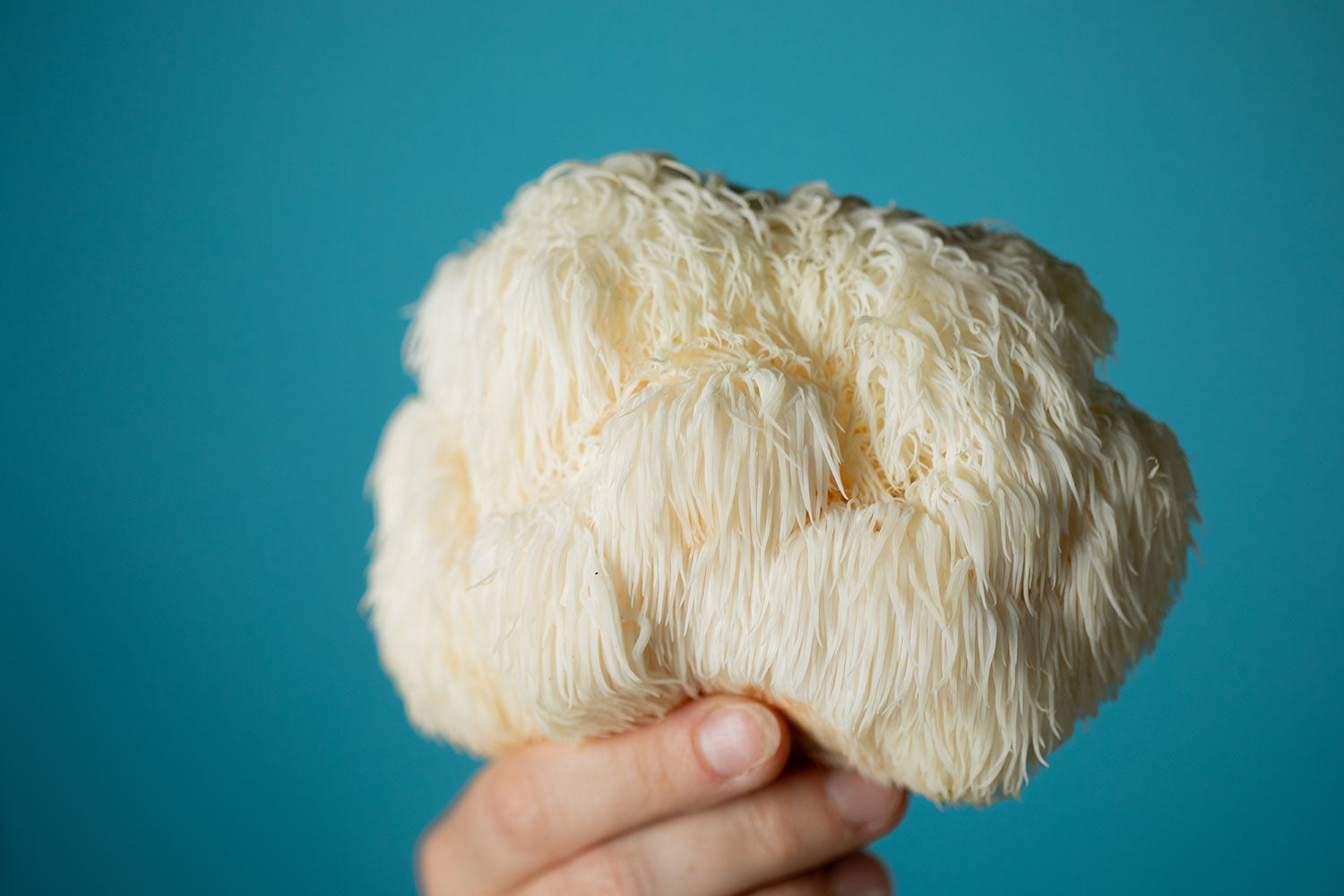ADHD + Medicinal Mushrooms
4 minute read

ADHD (Attention-Deficit/Hyperactivity Disorder) diagnoses are climbing for both men and women, a trend that's less about the disorder becoming more common and more about better access to healthcare, reduced stigma around mental health, and increased awareness of what ADHD really looks like.
Interestingly, the concept of ADHD isn't new. Descriptions that sound a lot like ADHD today can be traced back to the late 18th century, though back then, the understanding was quite different. Today, we're seeing a notable uptick in diagnoses among women and girls, who often exhibit the less conspicuous, inattentive type of ADHD. This shift is widening our grasp of the disorder's full spectrum.
Contrary to the outdated notion that ADHD is just a childhood phase, we now know the symptoms can stretch well into adulthood. This realization is reshaping our approach to adult ADHD, acknowledging that its manifestations, particularly inattention and executive function issues, can evolve with age.
ADHD's representation has its fair share of challenges. It's sometimes wrongly dismissed as merely a lack of discipline or effort. Recognizing ADHD as a genuine neurodevelopmental disorder with a broad range of symptoms and severity is vital. There are many overlapping symptoms that present as ADHD when in fact they are actually categorized as Anxiety disorders, Depressive disorders, Bipolar Disorder, Sleep Disorders, Autism Spectrum Disorder (ASD), Learning Disabilities, Medical Conditions and Modern Life.
Lately, there's a push to view ADHD not as an isolated disorder but as part of a broader spectrum of executive function. Our modern, high-speed lifestyle is putting more pressure than ever on our ability to focus and regulate ourselves, potentially intensifying ADHD symptoms for those affected. This perspective urges us to consider how environmental and lifestyle factors significantly influence the expression and management of ADHD symptoms.
By enriching our understanding of ADHD and embracing the diverse experiences of those living with it, we can foster a more inclusive and supportive environment. It's about peeling back the layers of misconception and stigma to reveal the complex, nuanced reality of ADHD—a condition that doesn't have a one-size-fits-all description and requires our attention and empathy to comprehend and address fully.
Can Mushrooms Help ADHD?
In light of the evolving understanding of ADHD, turning our attention to natural remedies like certain mushrooms could offer a complementary boost to conventional ADHD treatments. While mainstream discussions often focus on medication and behavioural therapy as primary strategies, the exploration of holistic approaches is gaining traction. Among these, mushrooms stand out for their intriguing neuroprotective, cognitive-enhancing, and stress-relieving properties.
Lion’s Mane (Hericium erinaceus) is celebrated for its ability to protect brain health and stimulate the production of Nerve Growth Factor (NGF). This activity is key to enhancing focus, memory, and overall cognitive function—elements particularly beneficial for those navigating the complexities of ADHD.
Reishi (Ganoderma lucidum), though best known for boosting the immune system, also offers a soothing mental effect. Its ability to alleviate stress and anxiety presents a valuable support tool for individuals with ADHD, helping to calm the mental chaos that often accompanies this condition.
Cordyceps (Cordyceps sinensis) is lauded for its energy-boosting capabilities. For those with ADHD, Cordyceps may offer a much-needed lift, combating fatigue and sharpening attention spans to better manage daily tasks and responsibilities.
While Brahmi (Bacopa monnieri) is not a mushroom, its mention in discussions around natural ADHD remedies is warranted due to its established benefits in enhancing cognitive functions such as memory, attention, and information processing.
As we deepen our understanding of ADHD and broaden the scope of treatment options, integrating natural remedies like mushrooms and Brahmi into the management strategy shows great promise. It's a journey towards discovering what combination of therapies works best for each individual. However, it's crucial to embark on this exploration under the guidance of healthcare professionals. Consulting with a doctor or health expert ensures that new supplements or dietary changes are aligned with your existing health plan and medications. This careful approach allows for the safe and informed integration of natural remedies, potentially smoothing the path of living with ADHD and enhancing overall well-being.
Remember:
Before you leap into any new health regimen, especially when navigating the complexities of ADHD, having a conversation with your healthcare provider is essential. They are equipped to ensure that your approach to incorporating natural supplements like mushrooms or Brahmi into your treatment plan is not only effective but also safe, considering your unique health profile and current medications. This proactive step ensures you're moving forward wisely and safely in managing ADHD.
Extra Resources:
https://www.ijest.org/nootropics/lions-mane-adhd/
https://onlinelibrary.wiley.com/doi/abs/10.1002/ptr.7215
https://pubmed.ncbi.nlm.nih.gov/23557365/
https://pubmed.ncbi.nlm.nih.gov/22593926/
Bacopa: https://www.ncbi.nlm.nih.gov/pmc/articles/PMC4757677 - Natural Product-Derived Treatments for Attention-Deficit/Hyperactivity Disorder: Safety, Efficacy, and Therapeutic Potential of Combination Therapy
• A randomized, double-blind, placebo-controlled study published in "Psychopharmacology" investigated the effects of Bacopa monnieri on cognitive function and assessed changes in attention, memory, and stress. The study reported significant improvements in cognitive processing, some aspects of memory, and a reduction in anxiety, which are relevant for managing ADHD symptoms.
- Reference: Stough, C., Lloyd, J., Clarke, J., Downey, L.A., Hutchison, C.W., Rodgers, T., & Nathan, P.J. (2001). The chronic effects of an extract of Bacopa monnieri (Brahmi) on cognitive function in healthy human subjects. Psychopharmacology, 156(4), 481-484.
Fatigue Reduction: Research in the "Chinese Journal of Integrative Medicine" demonstrated that Cordyceps sinensis effectively reduced fatigue in patients with chronic fatigue syndrome. By improving mitochondrial function (the energy powerhouses of the cell), Cordyceps can potentially aid in alleviating the fatigue commonly experienced by individuals with ADHD.
Leave a comment
All comments are moderated before being published.
This site is protected by hCaptcha and the hCaptcha Privacy Policy and Terms of Service apply.

